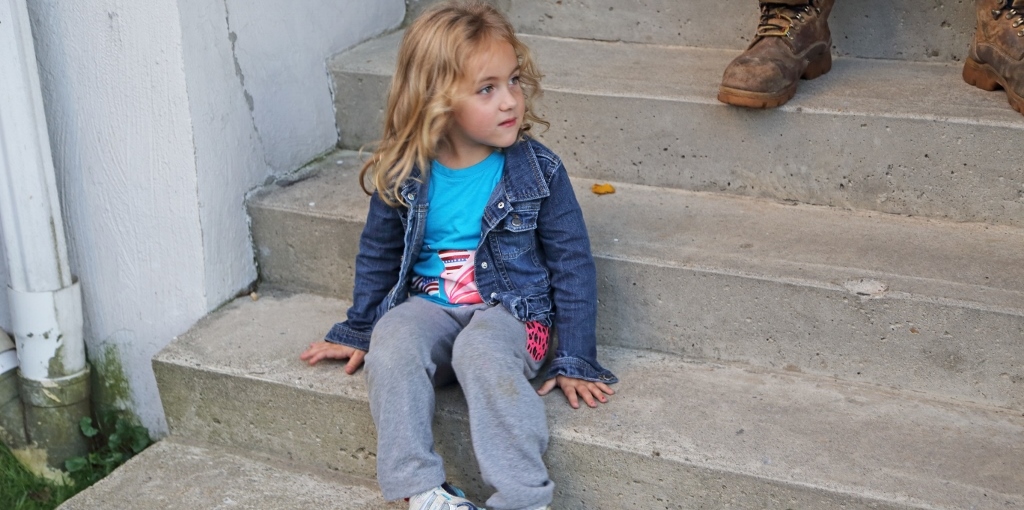The first time I was confronted with my privilege was in a newly-created position marketing the Just Neighbors curriculum for Family Promise. I was a graduate student at the time, in an international affairs program focused on the many levels of systemic injustice. It’s one thing to sit in a classroom and pick apart political and economic systems, and another to be able to identify how you benefit from them. Privilege is a subtle, almost invisible monster for those it serves, and a daily, in-your-face tormentor for those on the fringes.
Just Neighbors curriculum for Family Promise. I was a graduate student at the time, in an international affairs program focused on the many levels of systemic injustice. It’s one thing to sit in a classroom and pick apart political and economic systems, and another to be able to identify how you benefit from them. Privilege is a subtle, almost invisible monster for those it serves, and a daily, in-your-face tormentor for those on the fringes.
I had just moved back to New Jersey after a year working with refugees in Arizona. My apartment was in a small town on the train line to Manhattan, close to my new office, where the median household income is nearly $150,000. “I know the stereotypes, and I promise I’m not that,” I offered my new boss.” I lived in low-income housing in high school. This apartment is the smallest square footage you can get anywhere!” Interesting thing that, before the conversation had really begun, I was trying to explain away my privilege.
“How did you find out about that apartment?” my new boss asked, gently. I could tell this wasn’t your average get-to-know-you chat. My twenty-four-year-old self felt a lesson lurking.
“Through my grandmother’s best friend who lives there,” I replied, not sure why this was pertinent to the job I would be doing. My grandmother’s friend wasn’t a rich woman; she lived modestly in a two-bedroom unit and rented the spare room.
“She’s an insider in that community. She knows the ropes and has access to information. That’s privilege,” he said. “And who ‘gave you the keys’ to your place?”
I recoiled a bit. My bedroom was 30 feet from a main road and trucks pulled in and out of the grocery store across the street all day and night. I’d dealt with wet carpet and and soggy sheetrock after my neighbor’s’ pipes burst. But I paused before answering, and gave it some thought.
The owner was a man I hadn’t known prior, but in our first meeting I discovered he had worked at my alma mater and we knew many of the same people. “I know it’s hard to get a leg up when you are just starting out,” he told me. He had other people interested in the place, but he chose me. He offered me a break and a bit of grace, and our worlds are still connected to this day.
Ah, this it is, I realized. That sneaky little monster. Privilege. I had to understand what this meant in my own life before I could go out to talk to groups of people about the privileged systems of housing, employment, and education.
A decade later, despite this very soft and fortunate start, I’ve experienced much housing instability. I’ve gone from an owner to a tenant again, to foreclosed-upon-while renting, to sold-and-you-have-30-days to be out. I’ve lived out of a car and in spare rooms at friends’ houses, with my belongings scattered or in storage. And still, I realize, this is only a small glimpse into the challenges our guest families face.

Through all of this I have had steady employment, no dependents, education to fall back on, and family and friends who offer emotional support. I’ve enjoyed connections that get me to that next place: the realtor who forgoes the commission because our dogs met on a neighborhood walk; housing offered at below-market rate through my job; a friend who refers me to a house-share walking distance to a great downtown.
Once you get a glimpse into your own privilege, it’s not only impossible to un-see it, it’s painful to ignore the inherent disadvantages fellow humans face. But privilege is a persistent monster, and when it confronts me in a new and unexpected way– I often want to hide under the bed and tell it to go away.
One of my heroes, Krista Tippett, summed it up perfectly in her recent podcast “Let’s Talk About Whiteness” for On Being: “ Personally I don’t think people get paralyzed or turn away because they don’t care. I mean, maybe it’s true that sometimes they don’t care, but there’s a paralysis that sets in, right? It’s about, ‘I don’t know what to do with this. I don’t know how to make it better.’”
As a starting point, acknowledging privilege lends itself to greater empathy. It also requires a commitment to justice and nurtures the desire to create a more inclusive future. Let’s begin there.

